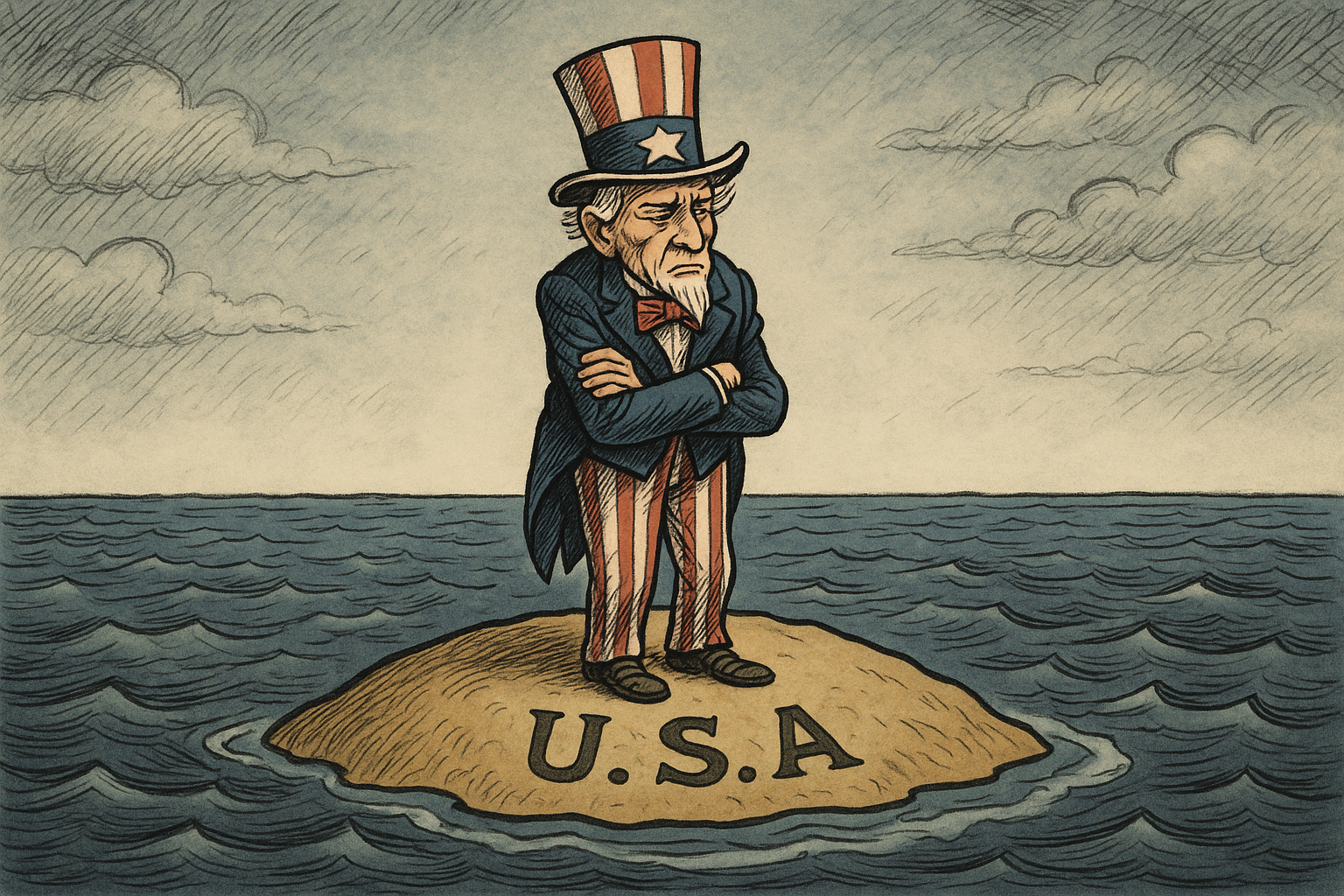“No man is an island, entire of itself; every man is a piece of the continent, a part of the main.” — John Donne, Meditation XVII

In an era defined by global interdependence, the United States stands at a pivotal juncture. Under President Donald Trump’s leadership, a renewed emphasis on “America First” policies has signaled a shift towards a more isolationist stance. While proponents argue for the benefits of focusing inward, this approach risks undermining the very foundations of international cooperation and stability that have long benefited the U.S.
Drawing inspiration from John Donne’s timeless assertion that “no man is an island,” we contend that no nation—especially one as globally integrated as the United States—can afford to turn inward without facing significant repercussions. Modern isolationism is not a path to renewed strength but a retreat that threatens national security, economic vitality, and the democratic values that underpin U.S. influence worldwide.
The Resurgence of Isolationism
President Trump’s administration has prioritized policies that emphasize national sovereignty and economic protectionism. Actions such as withdrawing from international agreements, imposing tariffs on foreign goods, and reducing foreign aid reflect a broader trend of disengagement from global institutions. While these measures resonate with segments of the American populace seeking change, they also raise concerns about the long-term implications for U.S. leadership on the world stage.
Security in an Interconnected World
The assumption that geographic distance equates to security is increasingly untenable. In an age of cyber threats, pandemics, and transnational terrorism, challenges easily transcend borders. Disengaging from international alliances and agreements can weaken collective security efforts, leaving the U.S. more vulnerable to emerging threats.
Economic Implications of Retreat
Economic isolationism, characterized by protectionist trade policies and reduced participation in global markets, can have detrimental effects on the U.S. economy. While intended to protect domestic industries, such measures often lead to retaliatory tariffs, increased costs for consumers, and strained relationships with key trading partners. Moreover, stepping back from international economic leadership cedes influence to other nations eager to shape global trade norms.
Erosion of Democratic Alliances and Values
The U.S. has historically championed democratic values and human rights on the global stage. A retreat from international engagement risks weakening alliances with other democracies and emboldening authoritarian regimes. By diminishing its role in promoting democratic ideals, the U.S. may find its moral authority and soft power significantly reduced.
Isolationism and American Identity
America’s identity has long been intertwined with its role as a global leader and advocate for freedom and democracy. Embracing isolationism challenges this identity, suggesting a shift towards a more insular and self-focused national ethos. Such a transformation could have profound implications for how the U.S. is perceived internationally and how Americans view their country’s purpose and values.
A Smarter Path: Responsible Internationalism
Rejecting isolationism does not necessitate endless interventionism. Instead, it calls for a balanced approach that combines prudent engagement with strategic restraint. By investing in alliances, participating in multilateral institutions, and promoting democratic values, the U.S. can safeguard its interests while contributing to global stability.
The Path Forward
The resurgence of isolationist sentiment in American politics is understandable but misguided. While the desire to refocus on domestic renewal is justified, retreating from the world will not bring the security, prosperity, or sovereignty that its proponents promise. On the contrary, it invites instability, diminishes U.S. influence, and erodes the democratic order the U.S. helped forge.
As John Donne reminds us, no man—or nation—is an island. In this interconnected age, American well-being is inseparable from global well-being. To isolate is to abdicate, and to abdicate is to decline. The U.S. must remain engaged—not out of naivety or imperial ambition, but out of a clear-eyed understanding that leadership is not a burden to escape, but a responsibility to embrace.
– Use Our Intel


